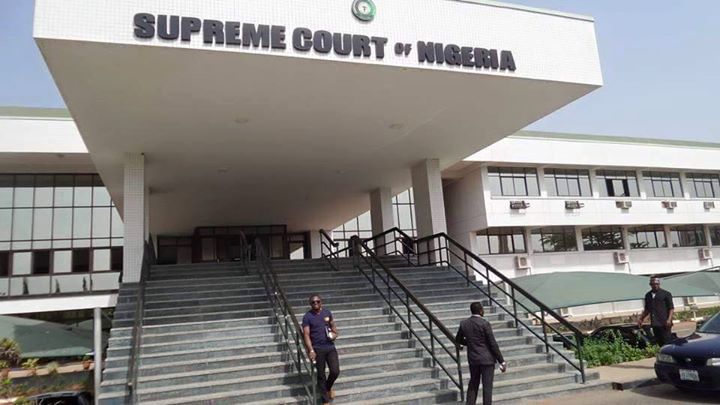Reduce Burden On Supreme Court, Barr. Njoku Urges CJN, National Assembly

Constitutional lawyer and Senior Advocate of Nigeria (SAN), Chief Soronadi Njoku, has called on the Chief Justice of Nigeria (CJN), Justice Kudirat Kekere-Ekun, to collaborate with the National Assembly in amending the Constitution to reduce the caseload of the Supreme Court. Speaking during a civic reception held in his honor in Abuja on Monday, Njoku emphasized the urgent need to relieve the apex court by limiting the types of cases that end up there, arguing that this would enhance the administration of justice in the country.
Njoku, who was recently inducted as one of 87 new Senior Advocates of Nigeria, noted that cases that should conclude at the Court of Appeal often reach the Supreme Court, leading to extended litigation periods that last between seven to ten years. “It is abnormal that some cases, which ought to be resolved at the appeal stage, still find their way to the Supreme Court,” he remarked, urging for a constitutional amendment.
“Sincerely, the first thing that comes to my mind is that the CJN, Hon. Justice Kudirat Kekere-Ekun, should work in tandem with the National Assembly to amend the Constitution and reduce the number of matters that make their way to the Supreme Court,” Njoku said. He added that Nigeria is the only country where cases can originate from customary or magistrate courts and proceed all the way to the Supreme Court. He pointed out that the U.S. Supreme Court handles fewer than 100 cases annually, whereas Nigeria’s apex court is currently burdened with up to 3,000 cases.
Njoku also highlighted that this overwhelming workload has contributed to public perceptions of inefficiency within the Supreme Court. He argued that many minor cases, such as local leadership disputes, should not reach the highest court in the land. “The Supreme Court should focus on substantial matters, not deciding who is the rightful village head of Nnamawa village in Umuowa, Ngor Okpala,” he added.
Additionally, Njoku proposed that political cases, such as those involving elections for the House of Assembly, House of Representatives, and the Senate, should conclude at the Court of Appeal. He further advocated for the creation of a Constitutional Court dedicated solely to election-related cases, to prevent the judiciary from being overly consumed by political disputes at the expense of other matters.
“All the cases that give the judiciary a bad image are usually political in nature,” Njoku stated. “Create a parallel system, called the Constitutional Court, to handle cases related to elections, tenure disputes, and other political issues.”
Njoku expressed concern that every four years, the judiciary’s focus shifts entirely to election tribunals, causing delays in regular judicial processes. He lamented that appeals from election tribunals often halt the Court of Appeal and eventually the Supreme Court, extending the average lifespan of a case at the Supreme Court to up to 10 years.
The senior advocate also criticized the practice of dismissing cases based on technicalities, urging the judiciary to focus more on the substance of each case. “Cases should not be arbitrarily decided based on technicalities without truly examining their substance,” he concluded.

